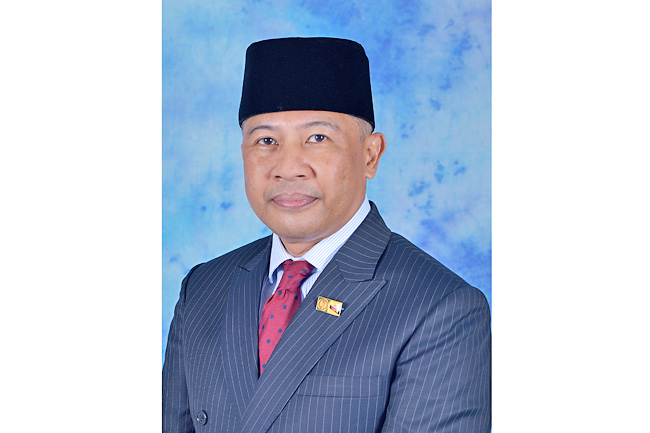Brunei Darussalam, with member countries of the World Meteorological Organization (WMO), celebrate World Meteorological Day today to commemorate the emergence of the WMO convention in 1950. The celebration is also to acknowledge the important contribution by the National Meteorological and Hydrological Services (NMHSs) in ensuring the safety and well-being of the global community.
Themed ‘The Future of Weather, Climate and Water Across Generations’, Minister of Transport and Infocommunications Pengiran Dato Seri Setia Shamhary bin Pengiran Dato Paduka Haji Mustapha said it emphasises the essential of international cooperation because weather, climate and water cycle know no national and political boundaries.
“This year’s World Meteorological Day celebration is very special as it is the 150th anniversary of the establishment of the International Meteorological Organization (IMO) in 1873, the predecessor before known as the World Meteorological Organization in 1950,” he said.
He continued, “In this 21st Century, we have already witnessed WMO’s satisfying achievements in preparation and coordination of worldwide meteorological data. The Sultanate, through the Brunei Darussalam Meteorological Department (BDMD), Ministry of Transport and Infocommunications (MTIC) is involved in the contribution of meteorological data to be shared around the world via Global Telecommunication System (GTS) for use by meteorological agencies in providing weather information, advisory, forecast and warning as well as climate science research.”


ARTIFICIAL INTELLIGENCE
The minister said rapid scientific and technological progress in the 21st Century has contributed abundantly to the advancement of weather and climate science.
He said, “Now we have also been able to witness the transition to the use of artificial intelligence (AI) methods other than the use of supercomputer for the purpose of conducting complex climate modeling simulations. This has enabled us to improve the accuracy of weather forecasts and early warnings.
“At the same time, these methods have also helped in the improvement of scientific research capability in global climate monitoring.
“This AI is one of the methods used by BDMD in the provision of weather information, advisory, forecast and warning with the usage of meteorological model namely Numerical Weather Prediction (NWP), which has improved the accuracy of weather forecasts and warnings issued by Brunei.
“NWP method is also used in preparation of long term weather forecast or Seasonal Outlook, which is forecast for up to three months ahead, to enable interested agencies in making any preliminary plan and preparation in facing extreme weathers such as flood, drought and strong wind.
“The use of NWP method is one of BDMD’s initiatives in supporting Strategic Plan of MTIC which is to comply with safety standards in Transport and Infocommunication sectors.”
NETWORKING
The minister said that “a comprehensive weather observation and monitoring network also contributes to the accuracy of weather forecasts and early warnings”.
He said, “The Ministry of Transport and Infocommunications through BDMD had and is actively working on several projects under the 11th National Development Plan (RKN11) which is the replacement and upgrade of Doppler Weather Surveillance Radar (DWSR), National Automatic Weather Stations (NAWS) and Automatic Weather Observation System (AWOS).
“With these initiatives, it will certainly enhance BDMD’s ability to provide more accurate weather forecasts and early warnings, which can contribute towards the safety of aviation, defence, maritime operations as well as for the entire population of the country.
“It can also enable first and safety responders to plan and make preparation for tackling and mitigating impact of weather-related disasters.”
CLIMATE CHANGE
The minister also noted the rise in global average temperature, which is 1.1 degrees Celsius, higher than when the IMO was established 150 years ago.
“Weather conditions are more extreme, ocean temperatures are warmer and more acidic, sea levels have risen and glaciers as well as ice have melted. This shows the need for every country to be prepared in readying adaptation measures and reduce the impact of climate change,” he said.
“As the ministry’s commitment in providing climate science information for NBD, MTIC through BDMD as a member of Adaptation and Resilience Working Group (ARWG), is actively conducting research in climate science, in which the results have been and will continue to be shared with interested agencies in the preparation of national adaptation plan in dealing with climate change event.”
The minister vowed that the MTIC through BDMD “will continue to support WMO’s efforts to ensure that meteorological and climatological services will continue to be enhanced with the aim of ensuring safety of life and property”.



















































